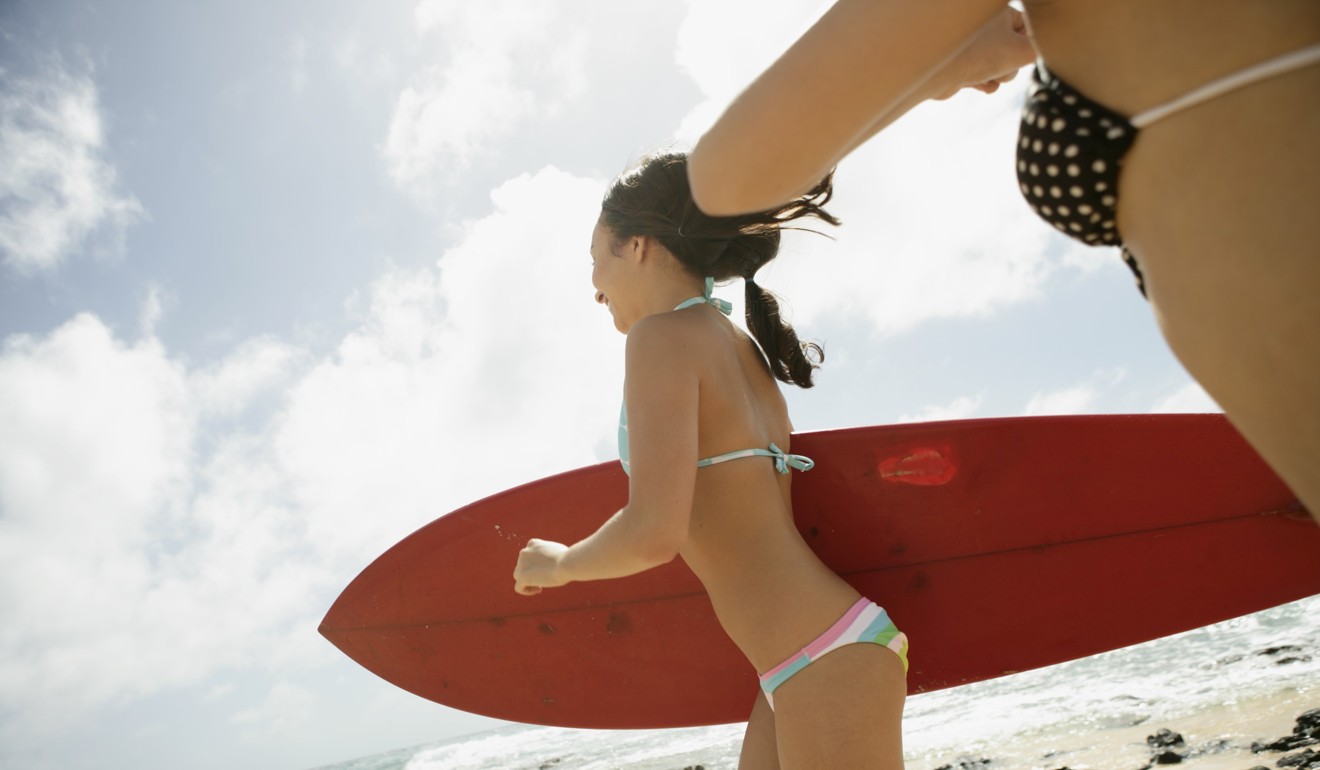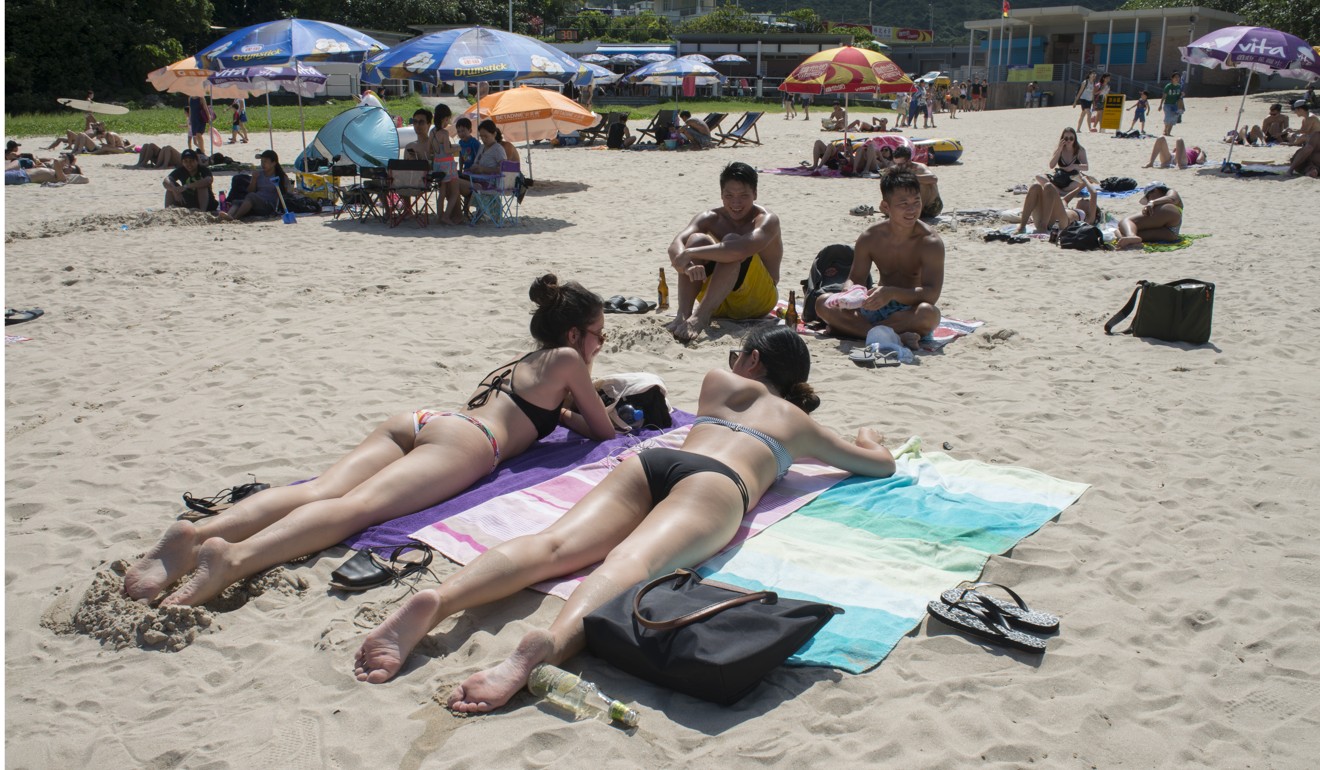
Hawaii lawmakers vote to ban certain sunscreen lotions to protect coral from chemicals
The bill, which has yet to be signed by the state’s governor, says sunscreen chemicals ‘have significant harmful impacts on Hawaii’s marine environment’
From Banana Boat to Coppertone, major sunscreen brands may soon have to revamp their products or stop selling them in Hawaii.
State lawmakers passed legislation Tuesday that would ban skincare companies from selling and distributing sunscreens on the islands that contain two chemicals deemed damaging to coral reefs.
If Governor David Ige signs the bill, it would make Hawaii the first state to enact legislation designed to protect marine ecosystems by banning such sunscreens.

SB 2471 states that the chemicals, oxybenzone and octinoxate, “have significant harmful impacts on Hawaii’s marine environment and residing ecosystems”; the bill aims to keep sunscreens that contain the chemicals off store shelves. The products would still be available to those who have a prescription from a licensed health care provider, the legislation states.
State Senator Mike Gabbard, the Democrat who introduced the bill, told the Star Advertiser that it would be “a first-in-the-world law.”
“So, Hawaii is definitely on the cutting edge by banning these dangerous chemicals in sunscreens,” Gabbard said in an email to the newspaper. “When you think about it, our island paradise, surrounded by coral reefs, is the perfect place to set the gold standard for the world to follow. This will make a huge difference in protecting our coral reefs, marine life, and human health.”
Gabbard could not immediately be reached for comment Wednesday.
According to the Smithsonian’s National Museum of Natural History, coral reefs are crucial to marine and human life.
In addition to protecting sea creatures, the Smithsonian said, the reefs provide food, medication and tourism jobs, among other things – at a value of US$30 billion to US$172 billion per year.
“Unfortunately, people also pose the greatest threat to coral reefs,” according to the Smithsonian. “Overfishing and destructive fishing, pollution, warming, changing ocean chemistry, and invasive species are all taking a huge toll. In some places, reefs have been entirely destroyed, and in many places reefs today are a pale shadow of what they once were.”

SB 2471 states: “Oxybenzone and octinoxate cause mortality in developing coral; increase coral bleaching that indicates extreme stress, even at temperatures below 87.8 degrees Fahrenheit; and cause genetic damage to coral and other marine organisms. These chemicals have also been shown to degrade corals’ resiliency and ability to adjust to climate change factors and inhibit recruitment of new corals. Furthermore, oxybenzone and octinoxate appear to increase the probability of endocrine disruption.”
“The legislature further finds that environmental contamination of oxybenzone and octinoxate persists in Hawaii’s coastal waters, as the contamination is constantly refreshed and renewed every day by swimmers and beachgoers,” according to the bill.
The Star Advertiser reported that the proposed law, which would go into effect in 2021, was opposed by ABC Stores, the Hawaii Medical Association, the Hawaii Food Industry Association, Chamber of Commerce Hawaii, the Personal Care Products Council and Bayer, which manufactures sunscreens by Coppertone.
Bayer said in a statement that the company intends to comply with the legislation but that “eliminating the use of sunscreen ingredients considered to be safe and effective by the FDA with a long history of use not only restricts consumer choice, but is also at odds with skin cancer prevention efforts. What has been scientifically proven is that exposure to UV radiation from the sun causes skin cancer. And sunscreen is one of the most effective ways to protect yourself from UV exposure, in addition to wearing protective clothing, sunglasses and staying in the shade.”
Edgewell Personal Care, which manufactures Banana Boat and Hawaiian Tropic sunscreens, said some of its products are already available without oxybenzone and octinoxate.

